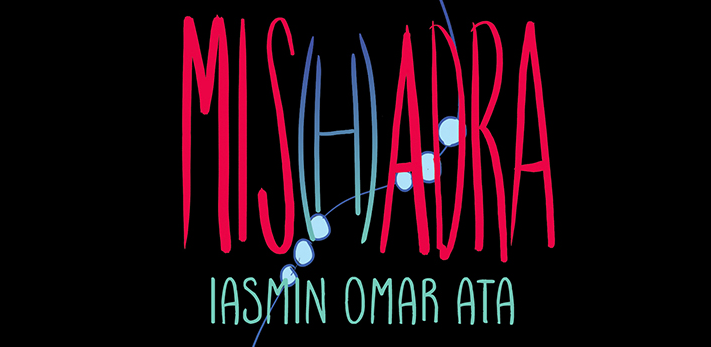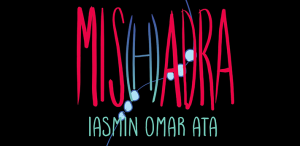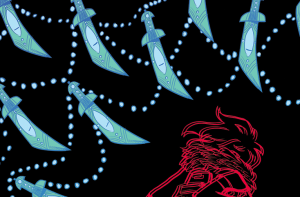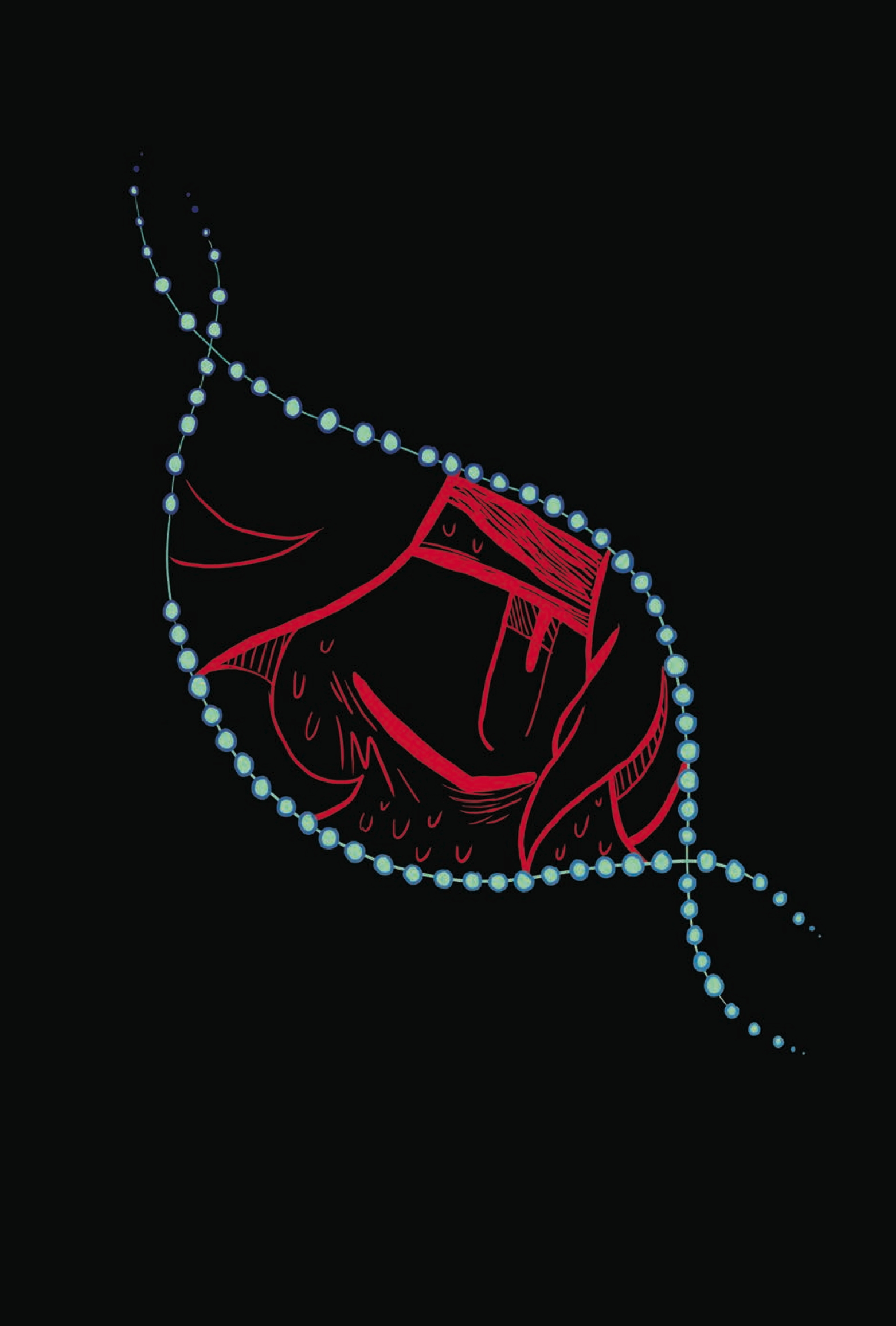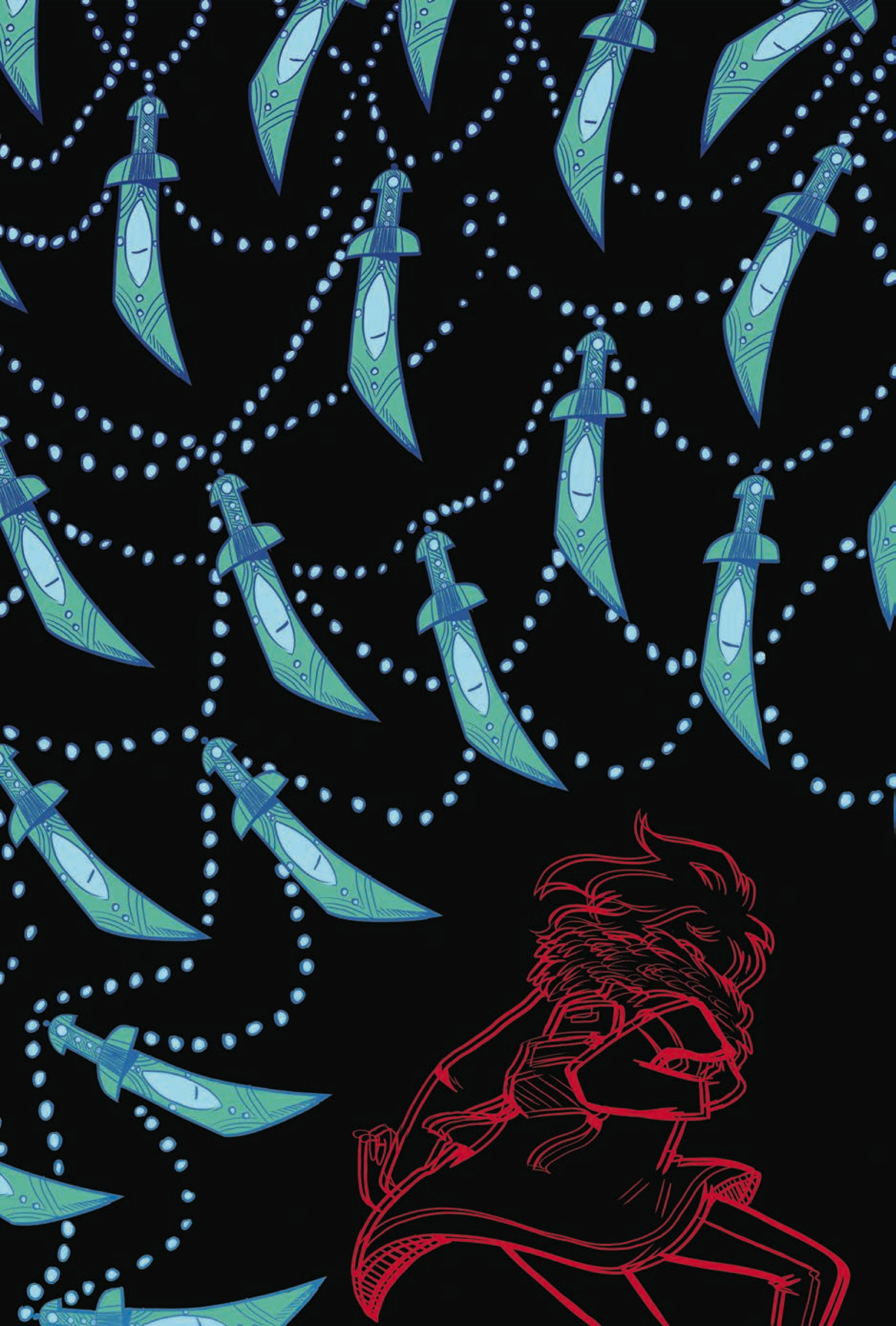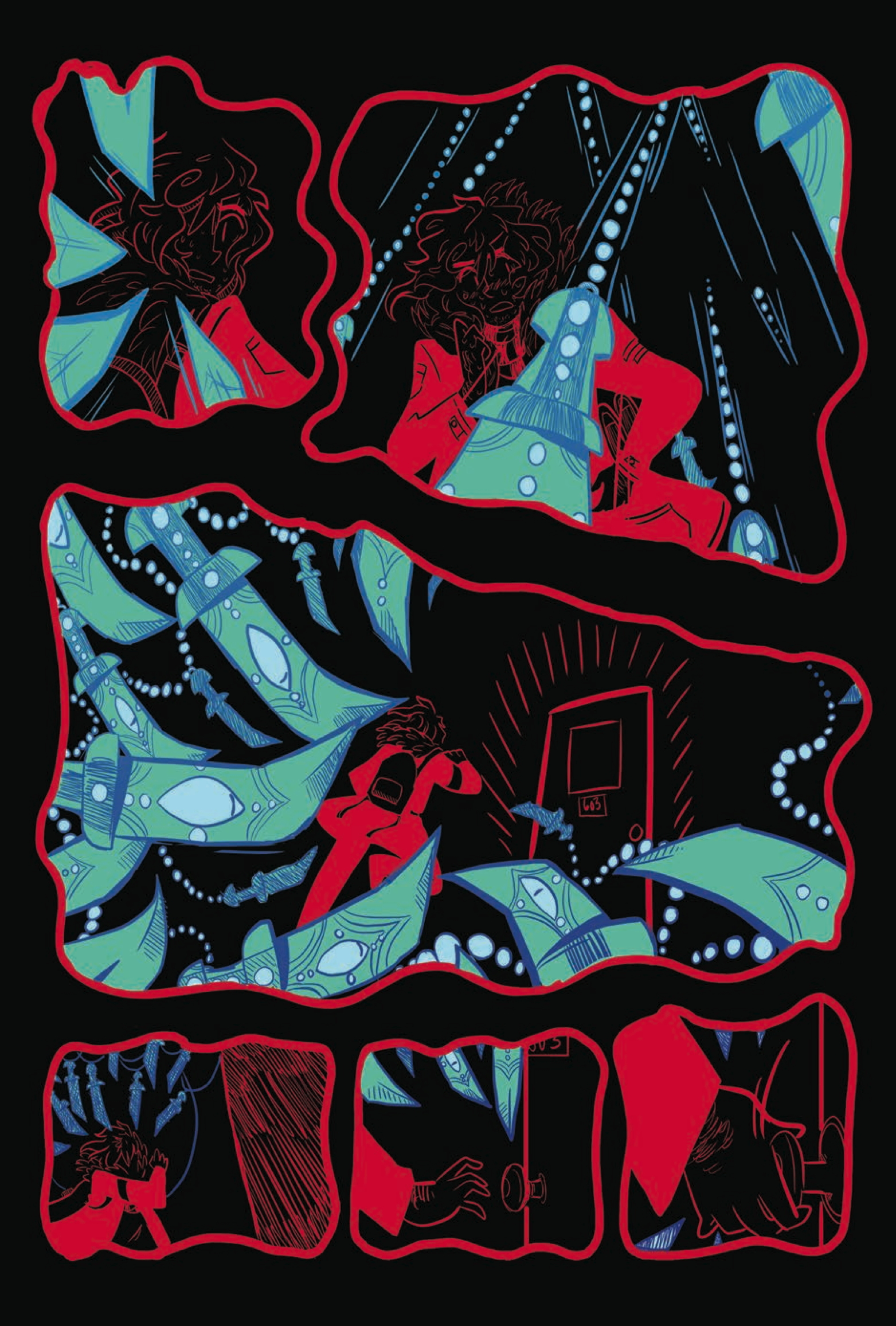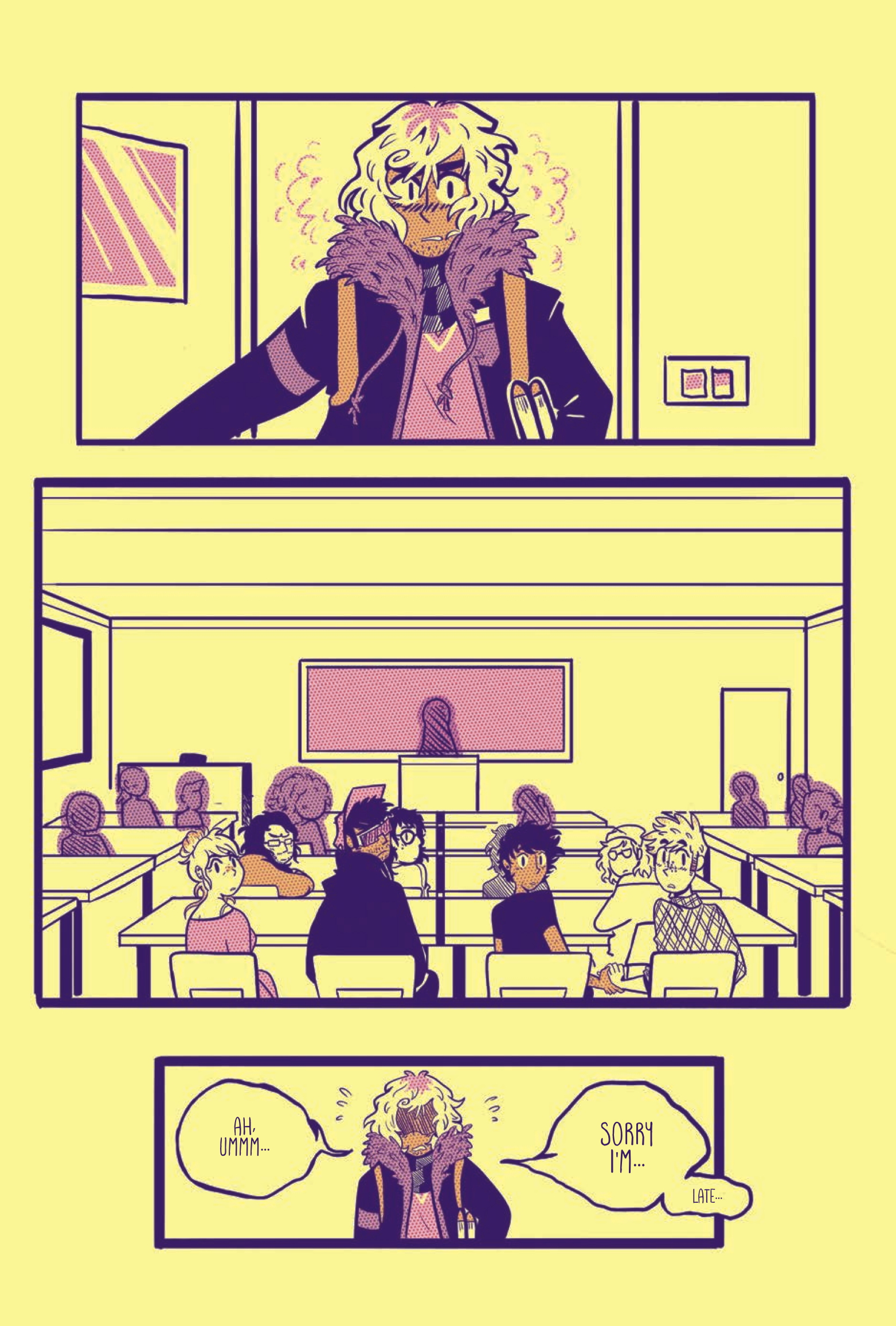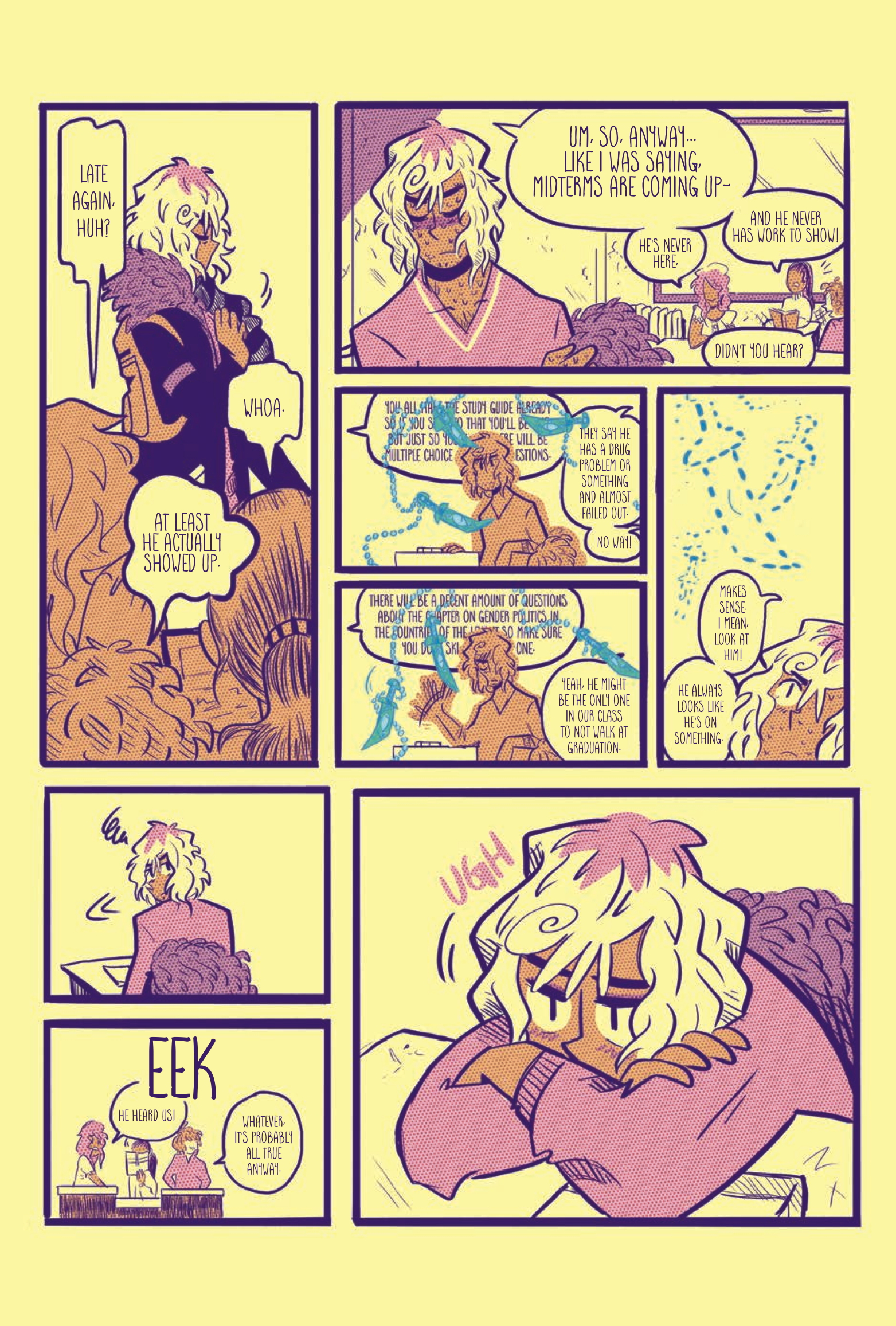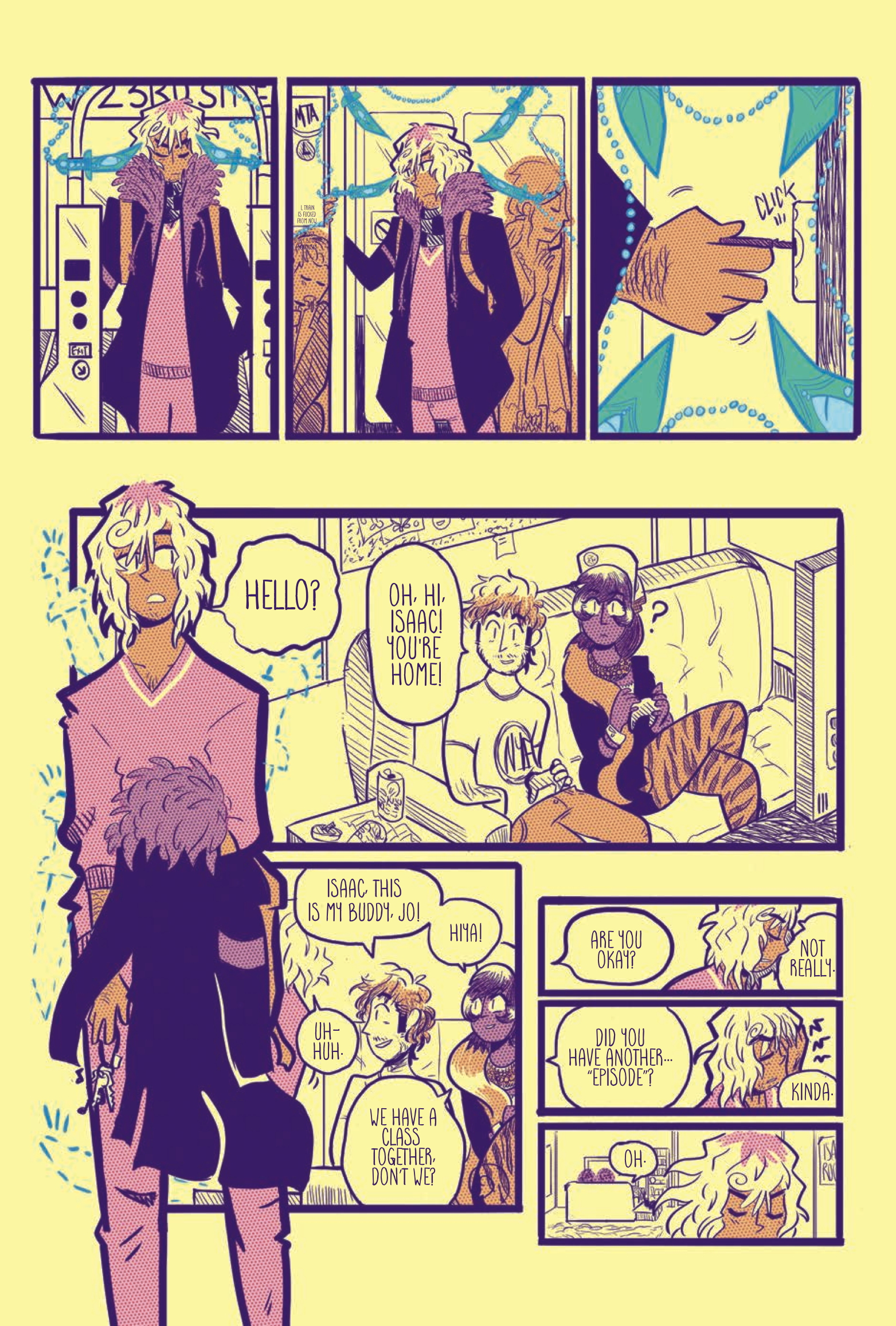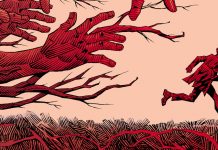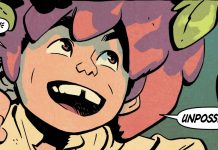If you’re anything like me, you might know little to nothing about epilepsy, let alone what a seizure is like as either the person having one or as an outsider. You can learn a great deal from websites epilepsy.com, but facts and studies are internalized all the more when you can experience the ethos of a mental illness. And it’s a challenge to truly describe such a thing, proven by countless attempts to explain depression to people who have never felt it. Mis(h)adra, however, is able to carry some profound insight into living with epilepsy because Iasmin Omar Ata created this story as someone doing just that.
Despite having little to no knowledge or experience with epilepsy myself, I find it very impressive that this comic is able to make you feel the intensity of Isaac’s illness. For starters, the way he struggles to regain structure in his life only to have any foundation he’s managed feel as though it’s falling apart soon after as his psychosis. (Admittedly, it is difficult to tell if Isaac’s particular form of epilepsy is psychosis or if the depiction is metaphorical.) All the same, the sense of despair, anxiety, and self-loathing is not lost on the reader.
Arguably, one of the most important aspects of this comic is Isaac’s friendship with Jo. This character presents unwavering support, which also triggers the protagonist’s doubts that someone suffering from any sort of mental illness is familiar with; you’re nice enough to care about me, I don’t want to burden you. I don’t deserve this. Am I selfish for wanting you to keep caring? How long until you can’t handle me anymore? So much real, raw inner conflict is poured into these pages. Without wishing to spoil the ending, I have to say it is one that left me feeling satisfied, but cautioned. You aren’t magically cured of your mental illness, something Ata knows very well.
Another point of note is that this comic doesn’t show medication and therapy as simple solutions, but as tools that, in reality, are not always easy or pleasant to go through. There are many different types of both because there is no one-size-fits-all technique. At the same time, Ata is optimistic in a safe, realistic way. The methods in which people are able to live with this sort of thing, from therapy to meds to simply knowing your own limits, are not to be seen as signs of weakness.
Perhaps my only hangup on the story was a fairly early plot point involving a pretty serious injury. This is touched on in and out throughout the story, but it doesn’t quite feel like it fits. My impression was that Isaac was almost too well-adjusted to the accident and physical damage as a result, but suffice to say this really is the only issue I had with the story; one which compelled me with its sincerity and kept me invested in Isaac’s psychological battle to achieve a stable, happy life.
Mis(h)adra is the product of a new era, one where people of all genders, races, and minds are breaking into publishing and sharing their voices. And Ata has a unique and beautiful voice that I predict will enlighten the neurotypical and resonate with those struggling to find hope as they deal with their own mental illness and the fears of always being isolated because it.


